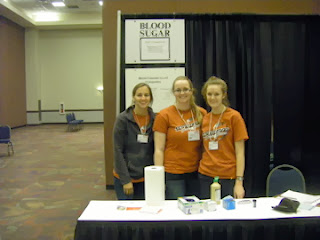Eight
Questions to Ask When Choosing the Right Adult Day Center
by ElderCarelink
According to the National Adult Day Services Association
(NADSA), there are approximately 4,600 adult day centers nationwide. These
centers typically provide social, medical, and specialized care for elders in
community or group settings. If you've been considering enrolling your loved
one or parent into a facility, it may be a solid choice.
Adult day care is a
really good option to have care in a group or social setting, says Gina
Kaurich, a professional geriatric care manager.
Selecting a center
If you and your
parent believe adult day care is a good option, be sure to exercise caution and
due diligence when selecting a facility. The NADSA recommends that caregivers
and family members first evaluate the needs of their loved one. For example,
social activities may be important if your parent lives alone. On the other
hand, a parent with dementia or special health concerns may need a facility
with a lower client to caregiver ratio.
Before making a
decision, be sure to tour several facilities to get a sense of what different
providers have to offer.
The Centers for
Medicare & Medicaid recommend asking the following questions when touring a
facility:
1. How long has the
center been in operation?
2. Is the center licensed? Is that license valid?
3. What are the costs?
4. What type of training and credentials does the staff
possess?
5. What types of activities are offered?
6. Is access to medical or personal care services available?
7. Are transportation services available?
8. How are behavioral issues addressed and handled?
Caregivers should also contact their state's licensing board
or health department to inquiry whether any substantiated complaints have been
made against the facility.If you're ready to take the next step and find an
adult day care provider, let ElderCarelink.com assist you.



.JPG)
.JPG)
.JPG)
.JPG)
.JPG)
.JPG)
.JPG)
.JPG)
























